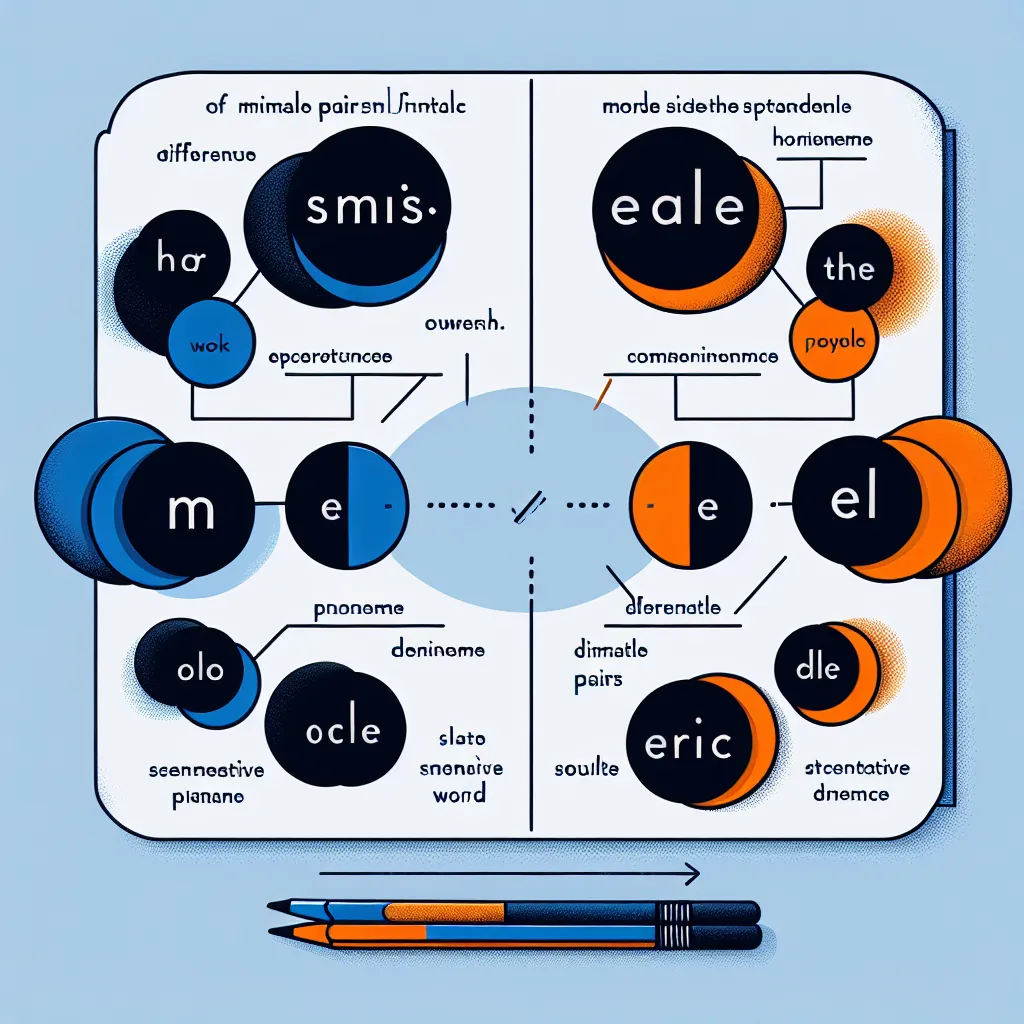Are you looking to enhance your English pronunciation and sound more professional in your communication? Whether you’re preparing for a job interview, giving a presentation, or simply aiming to improve your overall English speaking skills, mastering pronunciation is key to sounding professional and confident. In this comprehensive guide, we’ll explore effective strategies and practical tips to help you refine your pronunciation and elevate your professional English communication.
Why Professional-Sounding Pronunciation Matters
Before we dive into the specific tips, it’s crucial to understand why professional-sounding pronunciation is so important in the business world and beyond. Clear, accurate pronunciation:
- Enhances credibility and professionalism
- Improves communication effectiveness
- Boosts confidence in professional settings
- Reduces misunderstandings and miscommunications
- Helps create a positive first impression
 Professional English Pronunciation
Professional English Pronunciation
Key Elements of Professional English Pronunciation
Stress and Intonation
One of the most crucial aspects of sounding professional in English is mastering stress and intonation patterns. English is a stress-timed language, which means that certain syllables and words are emphasized more than others. This rhythm is essential for clear communication and sounding natural.
Tips for improving stress and intonation:
-
Practice word stress: Focus on the stressed syllable in multi-syllable words. For example, in “presentation,” the stress is on the third syllable: pre-sen-TA-tion.
-
Learn sentence stress: In English, content words (nouns, verbs, adjectives, adverbs) are usually stressed, while function words (articles, prepositions, pronouns) are often unstressed.
-
Use intonation to convey meaning: Rising intonation often indicates questions or uncertainty, while falling intonation suggests statements or certainty.
Clear Articulation
Articulating sounds clearly is essential for professional communication. Pay attention to the following:
-
Consonant clusters: Practice words with multiple consonants together, like “strengths” or “sixths.”
-
Vowel sounds: English has many vowel sounds that don’t exist in other languages. Focus on the differences between similar sounds, like the “i” in “ship” vs. “sheep.”
-
Final consonants: Many non-native speakers tend to drop final consonants. Practice words ending in consonants, especially those that are important for meaning, like plural “-s” or past tense “-ed.”
Reduction and Linking
In natural, fluent English speech, certain sounds are reduced or linked together. Mastering these features will make your speech sound more professional and native-like.
-
Reduce unstressed syllables: In words like “comfortable,” the middle syllable is often reduced to “comf-ta-ble.”
-
Use contractions: In professional speech, contractions like “I’m,” “we’ve,” or “they’re” are common and sound more natural than always using the full forms.
-
Link words: Practice connecting words smoothly, especially when a word ending in a consonant is followed by a word beginning with a vowel, like “an_apple” or “come_over.”
Practical Tips for Improving Professional Pronunciation
1. Listen and Imitate
One of the most effective ways to improve your pronunciation is through active listening and imitation.
- Watch professional English speakers in action: TED Talks, business news, and industry-specific presentations are excellent resources.
- Use shadowing techniques: Listen to a short segment, then try to repeat it with the same pronunciation, stress, and intonation.
- Record yourself and compare: This will help you identify areas for improvement.
2. Focus on Problematic Sounds
Identify the sounds that are particularly challenging for speakers of your native language. For example:
- For Spanish speakers: The “th” sound in words like “think” or “the”
- For Japanese speakers: The “l” and “r” distinction in words like “light” and “right”
- For Arabic speakers: The “p” sound in words like “paper” or “apple”
Practice these sounds in isolation, then in words, and finally in sentences to build your confidence and accuracy.
3. Use Pronunciation Apps and Tools
Take advantage of technology to support your pronunciation practice:
- Apps like ELSA Speak or Pronunroid offer targeted exercises and feedback.
- Online dictionaries with audio pronunciations, such as Cambridge Dictionary, can be invaluable resources.
- Text-to-speech tools can help you hear how words and phrases should sound.
4. Work with a Pronunciation Coach
Consider working with a professional pronunciation coach or taking a specialized course. They can provide personalized feedback and tailored exercises to address your specific needs.
 Pronunciation Coaching Session
Pronunciation Coaching Session
5. Practice Tongue Twisters
Tongue twisters are an excellent way to improve your articulation and speed. Start slowly and gradually increase your pace. Some professional-oriented tongue twisters include:
- “The sixth sick sheikh’s sixth sheep’s sick.”
- “How much wood would a woodchuck chuck if a woodchuck could chuck wood?”
- “Unique New York, you know you need unique New York.”
6. Read Aloud Regularly
Set aside time each day to read aloud from professional materials such as business articles, reports, or speeches. This practice will help you become more comfortable with professional vocabulary and phrasing.
Common Pronunciation Mistakes to Avoid
Being aware of common mistakes can help you proactively improve your pronunciation. Here are some errors frequently made by non-native speakers:
- Mispronouncing “th”: Often pronounced as “t,” “d,” or “z” instead of the correct interdental sound.
- Incorrect word stress: Placing emphasis on the wrong syllable can change the meaning or make words difficult to understand.
- Ignoring silent letters: Words like “listen,” “receipt,” or “subtle” have silent letters that are often mistakenly pronounced.
- Over-pronouncing unstressed syllables: In words like “chocolate” or “vegetable,” the middle syllables should be reduced.
- Failing to aspirate initial plosives: In English, initial “p,” “t,” and “k” sounds are aspirated (accompanied by a puff of air).
The Phonemic Chart and Commonly Mispronounced Words
Understanding the International Phonetic Alphabet (IPA) and using a phonemic chart can significantly improve your pronunciation. Here’s a list of 10 commonly mispronounced words in professional contexts, along with their correct pronunciations:
- Colleague: /ˈkɒliːɡ/ (not /kɒˈliːɡ/)
- Hierarchy: /ˈhaɪərɑːki/ (not /ˈhɪərɑːki/)
- Entrepreneur: /ˌɒntrəprəˈnɜː(r)/ (not /ˌɒntrəˈprenuːr/)
- Development: /dɪˈveləpmənt/ (not /dɪˈveləpment/)
- Specifically: /spəˈsɪfɪkli/ (not /ˈspesɪfɪkli/)
- Miscellaneous: /ˌmɪsəˈleɪniəs/ (not /mɪsˈseləniəs/)
- Etcetera: /etˈsetərə/ (not /ek’setərə/)
- Prestigious: /preˈstɪdʒəs/ (not /preˈstɪdʒiəs/)
- Pronunciation: /prəˌnʌnsiˈeɪʃn/ (not /prəˌnaʊnsiˈeɪʃn/)
- Exponential: /ˌekspəˈnenʃl/ (not /ˌekspəˈnentʃl/)
Practice these words regularly to avoid common pitfalls in professional speech.
Conclusion
Improving your pronunciation to sound more professional in English is a journey that requires dedication and consistent practice. By focusing on key elements like stress, intonation, and clear articulation, and by utilizing the tips and resources provided in this guide, you can significantly enhance your professional English communication skills. Remember, the goal is not to eliminate your accent entirely, but to speak clearly and confidently in professional settings.
We encourage you to start implementing these strategies today and to be patient with yourself as you progress. For more in-depth guidance on specific aspects of pronunciation, check out our related articles on how to improve pronunciation using guided practice and tips for reducing your foreign accent in English.
Do you have any specific pronunciation challenges or success stories to share? We’d love to hear about your experiences in the comments below!




